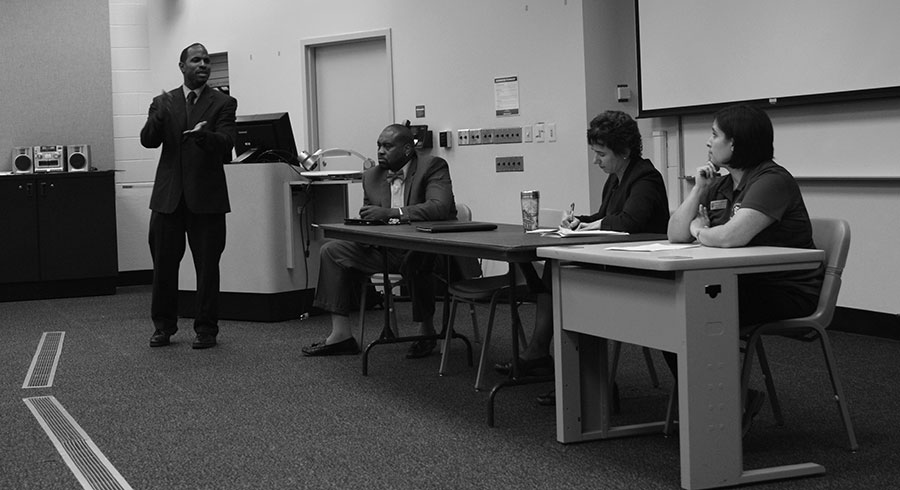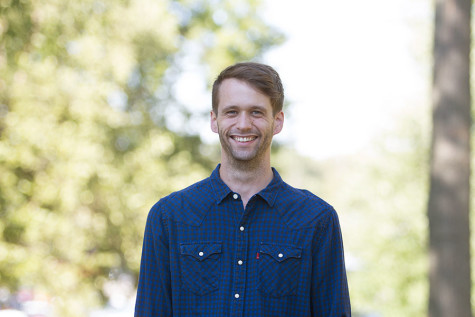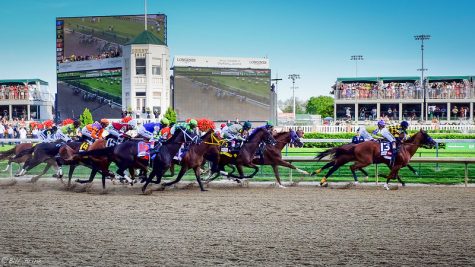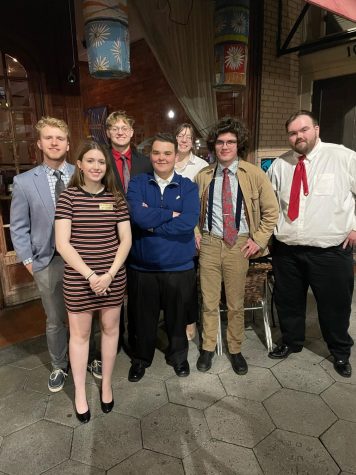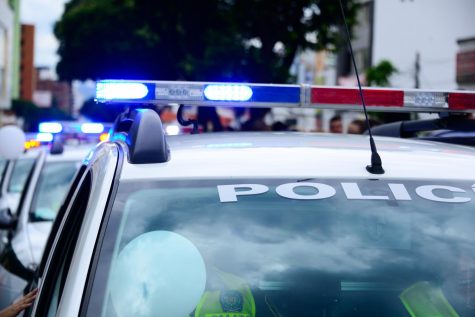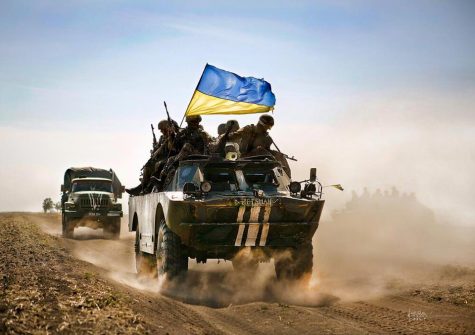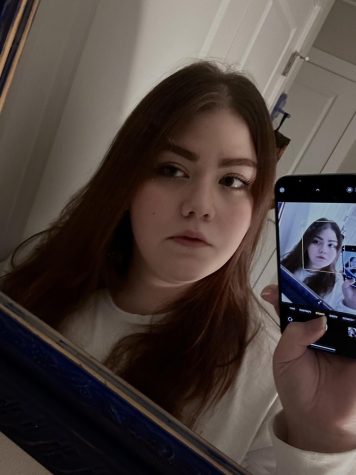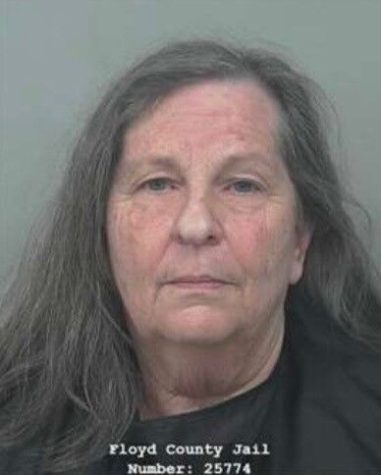Race and policing
PANEL DISCUSSES THE IMPLICATIONS OF FERGUSON
November 3, 2014
Almost three months after the shooting of Michael Brown in Ferguson, Mo., the city has continued to be the epicenter of racial and policing discussions in America. To bring the discussion to IU Southeast, the Department of Political Science and the newly founded Political Science Club hosted a panel discussion with speakers from both IU Southeast and the University of Louisville.
Veronica Medina, assistant professor of sociology, started the panel with a discussion on the controlling images surrounding race in America.
“Controlling images in our society are designed to make racism, sexism, poverty and other forms of social injustice appear natural, normal and inevitable,” Medina said.
These controlling images usually come from outside of the group that they are oppressing, Medina said. By creating a universal representation we are flattening out the diversity of these groups and individuals.
“Basically, what we do is blame the victims for their circumstances because of the stereotypes we attribute to them, failing to take into consideration how structural conditions shape those particular types of stereotypes,” she said.
Derrick Brooms, assistant professor of sociology at the University of Louisville, said that these controlling images can be seen in both the cases of Trayvon Martin and Michael Brown.
“So then when I’m asking people, ‘What do you think about the Trayvon Martin and George Zimmerman court case?’ People were saying that Trayvon Martin was on trial,” Brooms said. “I just want you to think about that. Here’s somebody who had been killed and yet, they’re on trial for some pictures that were on Facebook, for being hostile in school. Later on we get an autopsy and Michael Brown is found to have had weed in his system. That did not get him stopped that day.”
By forming a narrative around who these people are, we can justify how we police them, Brooms said.
“Then that creates particular reactions, responses in our interactions that problematize how people engage in public spaces,” he said.
Joseph Grant, lecturer of criminology and criminal justice and 24-year retired veteran of law enforcement, said that he looks at the policing issues in Ferguson from a training standpoint.
“We also have to look at the quality of our training of officers,” Grant said. “Not only in defensive tactics, but in their interpersonal skills, the tactics, the strategies that they use. I’ve seen a lot of videos where officers were involved in shootings and they have poor tactics that put them in bad positions that make hasty decisions. Where if they had used better tactics, the situation may have turned out differently.”
Police officers need to get to know the people they are serving, act with compassion and be morally courageous, Grant said.
“You have to do the right thing for the right reason, even if nobody else is standing up for you,” he said. “And that’s a hard thing to do. It’s a hard thing to do. But when you accept the role of a police officer that is your responsibility; to take control of your life. You take control of your attitude, your behavior and influences, the attitudes and behaviors of others.”

